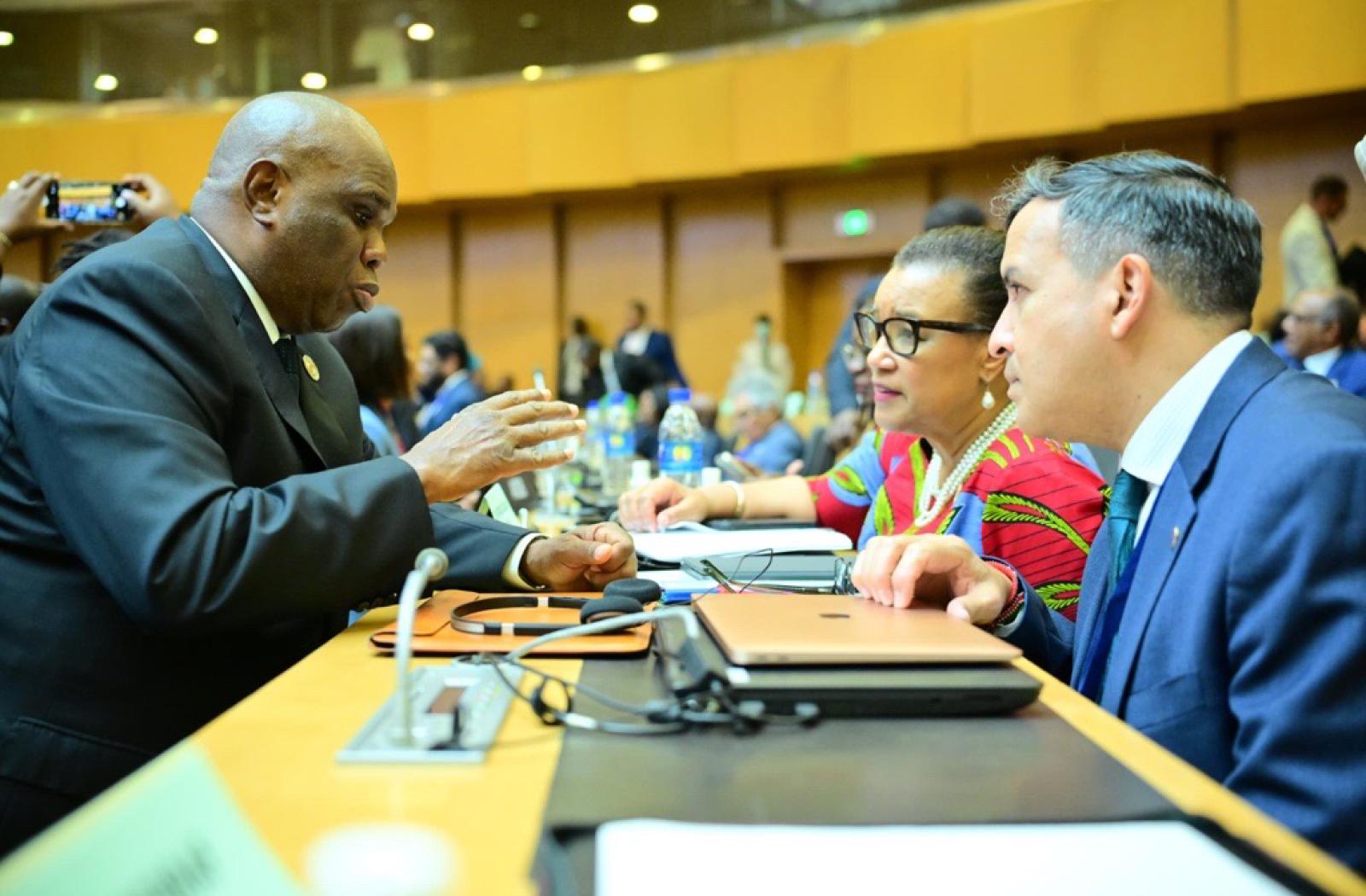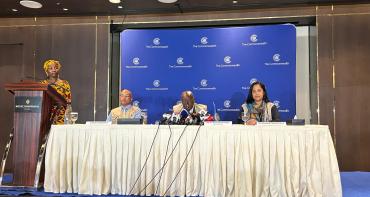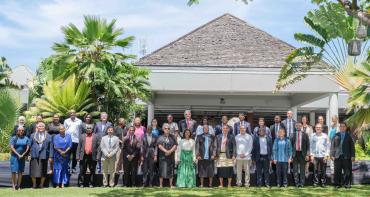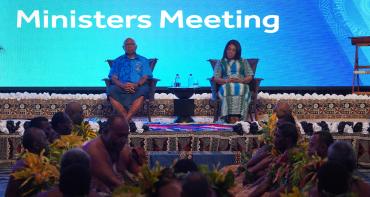The Commonwealth Secretariat and the African Union have renewed their call for a reform of the global financial architecture to improve Africa’s access to international finance.

Photo of: Benedict Okey Oramah, President of the African Export-Import Bank; The Rt Hon Patricia Scotland KC, Commonwealth Secretary-General and Luis Franceschi, Assistant Secretary General of the Commonwealth.
Credit: The African Development Bank Group
During a Presidential Dialogue in the margins of the 37th Ordinary Session of the Assembly of the African Union, leaders highlighted the urgent need to rectify the existing quota system, which often favours wealthier nations, leaving Africa with disproportionately limited resources and influence.
The meeting took place in Addis Ababa from 16-20, February.
Speaking from the Ethiopian capital, Commonwealth Secretary-General, The Rt Hon Patricia Scotland KC, said:
“The global financial architecture lacks balance and fails to consider the vulnerability of many African economies in climate adaptation. As far back as 2018, the Commonwealth said that it’s not fit for purpose.
“If you look at what is happening in so many of our countries when it comes to climate change, you can see that the financial structure does not consider Africa’s vulnerability. It simply doesn't work, and it cannot be fair.”
The Secretary-General called for the swift implementation of new financing mechanisms for sustainable development, prioritising countries with the greatest need. She added,
“This is why we introduced the Commonwealth Universal Vulnerability Index - to consider multidimensional vulnerability in allocating new development funding. It helps target international finance, including overseas aid and debt relief, for countries in need of support.
“Twenty-one Commonwealth countries are members of the African Union. They contribute to other multilateral organisations and support development banks that play a crucial role in financing and investing on the continent. If we pool together our knowledge, expertise, abilities, and finance, we will deliver the change we want to see.”
Flipping the script on Africa’s development financing
The global financial architecture comprises international financial institutions, development banks, global economic governance structures, and financial regulatory mechanisms, all of which contribute to shaping Africa's economic future.
The presidential dialogue brought together Heads of State and Governments, Finance and Economy Ministers, Central Bank Governors, Ministers of Foreign Affairs, international organisations, and development partners that highlighted the need to take active steps to improve Africa’s access to finance.
During their deliberations, delegates launched the Alliance for African Multilateral Financial Institutions (AAMFI) – Africa Club - which will bring together member institutions to find solutions to financing challenges in support of sustainable economic development and integration objectives on the Continent.
The Africa Club comprises African Multilateral Financial Institutions (AMFIs) like the African Export Import Bank (AfreximBank), the Trade and Development Bank (TDB), Africa Finance Corporation (AFC), African Reinsurance Corporation (Africa Re) and African Trade and Investment Development Insurance (ATIDI). AMFIs hold assets in excess of US$53 billion and attract equity investment of over US$8.6 billion, primarily from African countries, to support African growth and resilience. With the launch, the alliance aims to strengthen Africa’s position in an evolving global financial architecture.
During talks with the President of AfreximBank, Benedict Oramah, on the sidelines of the launch, Secretary-General Scotland welcomed the idea of the Africa Club and discussed possible areas of collaboration to support small and vulnerable states across the Commonwealth.
Strategic Steps and Innovations
At the five-day meeting, delegates also discussed transparency and Africa’s debt crisis. Secretary-General Scotland outlined the benefits of the Commonwealth’s Public Debt Management Programme, specifically the Commonwealth Meridian. This state-of-the-art software offers solutions for countries’ day-to-day public debt management operations and equips officials with the critical data to make informed decisions for financial resilience.
The tool has been successfully deployed in Botswana, St Vincent and the Grenadines, Antigua and Barbuda, and recently, in Nigeria, where it aims to transform how the country manages its US$114.34 billion public debt portfolio.
In Addis Ababa, the Secretary-General met with government ministers and senior officials to discuss ways to deepen ongoing partnerships and cooperation between the Commonwealth and the African Union. She cited the Secretariat’s work on global trade advocacy, the Commonwealth Sustainable Development Goals Tracker and the organisation’s climate programme for member countries.
Secretary-General Scotland was supported by the Assistant Secretary-General, Prof Luis Franceschi, Adviser and Head, Africa Abiola Sunmonu and Political Officer Hafsa Maalim.
Media contact
-
Ijeoma Onyeator Communications Officer, Media and Public Affairs, Commonwealth Secretariat
- +44 20 7747 6175 | E-mail



